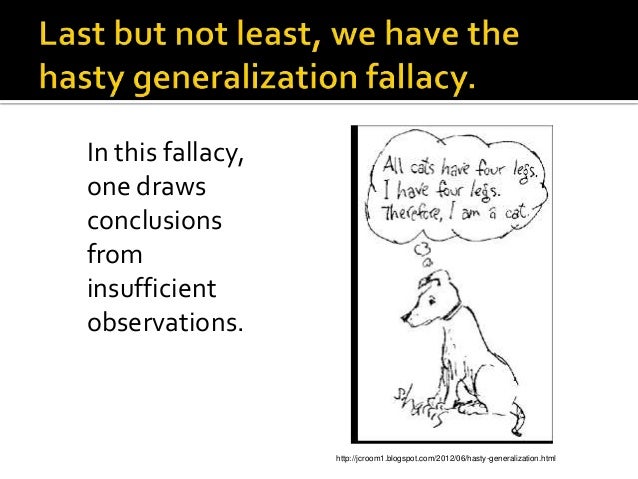objective (adj): 1.) expressing or dealing with facts or conditions as perceived without distortion by personal feelings, prejudices, or interpretations.
subjective (adj): 1.) characteristic of or belonging to reality as perceived rather than as independent of mind : PHENOMENAL. 2a.) peculiar to a particular individual : PERSONAL. 2b.) modified or affected by personal views, experience, or background
https://www.merriam-webster.com/
I guess this is to be continued. So basically picking up from where we left on in the previous post…

One last bit, then that’s the end of it from me. Unless it riles the interest of disinterested parties up to a certain level. A video trump card:

Host, all your points, including the commentary in your humbly titled “trump card,” have been addressed from minute one. There’s nothing inherently wrong with exploring an unlikable character’s psyche, but the failure of the film comes in the form of the “ironically” disingenuous methods of making Alex, as you said in that post-conversation parting shot in your blog despite earlier insistence that it wasn’t meant to be more palatable, “easier to stomach.” A significant chunk of Scott’s review focuses on the fakey shallowness of the (exc)use of perspective:
[Kubrick] insists that when his camera lingers like a drooling priapist on the exposed breasts and asses of the film’s female victims, or when he mocks those whom Alex attacks by making them the most contemptuous Monty Python caricatures of drunkards and high-society nitwits that he can, he’s merely showing us the way that Alex sees things. In his oft-quoted interview with Michel Ciment, given at the time of Clockwork’s release, Kubrick stated that, “Since [Alex] has his own rather special way of seeing what he does, this may have some effect in distancing the violence.” But everything in the film is distanced this way, both before and after Alex’s artificial conversion to harmlessness — Kubrick’s heightened approach to Alex’s hopped-up ultra-violence is scarcely differentiated in style or tone from a shot of him browsing discs in the record shop. Nearly every scene comes shrinkwrapped in the unrelatable hyper-reality evoked by the tinny electronic score (with its Muzak dehumanization of the great composers’ works), by the wide angle lenses’ distortion of space, by the laboratorial set design and that hard, flood-lit, almost shadowless lighting scheme Kubrick employs — and every character but Alex is painted in the same buffoonish brushstrokes as his victims. […]
Note all the shortcuts and crafty elisions he utilizes to achieve his ends. He cuts off that rival gang’s ravishing of their prey with the appearance of Alex and his droogs; we never see the rape carried through. Likewise, he ends the scene of Alex with the writer’s wife just before the actual penetration begins. Stripping these actresses and leaving us with only the full measure of their womanly bounties uses the stimulation of softcore to shut down our resistance, just as Alex and his crew deaden with drugs whatever slivers of compunction might precede their rampages. It prods us to acknowledge in ourselves the part of these thugs’ underdeveloped psyches that gets its jollies from thickets of snatch-thatch and fun-bags that pendulate like the woes of an accused man; it’s a flagrant, carny-barker appeal to the fourteen year-old boy inside us all. Spoiling our dubbed-Swedish-nudie-on-late-night-cable high with the women’s teary-eyed agony, or with the relentlessness of a five-on-one pounding followed by a likely dispatch via switchblade to the poor lass’ throat, would wilt our erections and cause us to dissociate, pulling back into hard, moral — adult — considerations. […] [T]he thing that makes Straw Dogs stand erect with the inflexibility of God’s truth while Clockwork wobbles under inauthenticity — is Peckinpah’s essential admission of humanity; it’s that, contrary to Kubrick’s distance through garishness and stylistic distortion, Peckinpah flambés his own flawed nature in addition to that of his characters. In Dogs, he’s right there in the thick of it alongside us: peering up into the eyes of a rapist from his victim’s point of view; so close to the faces of his embittered couple during the climactic siege that we can hear the panicked whirring of their minds leapfrogging from one rapid-fire survival strategy to the next.
In other words, the direction isn’t even good at being subjective because it isn’t consistent with his physical/mental state. All it and the diluted shock value are really doing is dehumanizing killjoy “moralizing bastards” and malleable “dumb fucks” (your words) — whose reactions surely stem from lacking dat Rick & Morty high IQ — as well making Alex “more palatable to the audience” (your parting shot’s words), demonstrating:
It’s the chilly inhuman flawlessness that’s the star of a Stanley Kubrick film. In The Shining, that chilliness lent itself to the mounting aura of dread we expect from a horror film; in Eyes Wide Shut, it served well the dream-logic journey from desire frustrated by diktat of what seems like cosmic will to sex “magick” and an apparent blood sacrifice. But in Clockwork, filtered through film-student shock cuts to a row of naked, bleeding Jesus figurines on Alex’s mantle, or through schoolboy naughtiness such as Alex’s pet snake posed against a mural of a spread-eagle woman so that it looks to be performing cunnilingus on her, it leaves us with little to register but how much, like Alex, Kubrick would love to smack and kick and mock us out of our self-induced stupor. His forays into Alex’s sexual adventurism may as well have been posed with mannequins because the warm blood behind that sexuality is lacking; the spontaneity and messiness of sexual endeavor would never be his forte as a director. What we take away from these moments is another awkward cashing-in on Seventies permissibility from a filmmaker whose career dated back to black-and-white days. Kubrick as sudden libertine is like a sheltered private-school kid playing naughty — he revels in shouting dirty words to impress the jocks and class cutups (whom he knows he’s better than, anyway) but there’s no true irreverence behind his stabs at mimicking the commoners; he hasn’t yet learned how potty-mouth and a fondness for boobies sit within the framework of plebeian self-expression.
Furthermore, films such as Detour, Double Indemnity, The Cremator, Boiling Point, and a chunk of Lynch’s filmography (for a start) peer behind the curtain of manipulative media and narrated perspective while much more clearly problemizing evil and making more potent connections to social and psychological reality than Clockwork Orange’s overstylized juvenile delinquency. I’ll also add that I find the polemic against power enforcing morality rather trite and misguided. Prevailing good taste, education at a young age, and criminal punishment needn’t be frantically compared to MK Ultra or whatever; power is amoral and inevitable, not immoral or abolishable. It’s the application that matters, and conservatives’ trying to leave a vacuum — I’d go so far as to say that phobia of power can be a cope used by establishments to demoralize their populaces into inertness — is what has resulted in leftists’ filling it. We should be trying to regain institutions and making it as hard for degenerates to produce media as they’ve been doing it to us. YouTube channel John Doyle has a lot of insightful content on this topic:

Well, I consider the interest riled up to that level. I think it’s time I show you what I really know about objectivity and subjectivity.
all your points […] have been addressed from minute one.
Addressing them is one thing. What is to be concluded about how they’ve been addressed is another.
the failure of the film comes in the form of the “ironically” disingenuous methods of making Alex […] “easier to stomach.”
Subjective opinion, in spite of what you claim. You call them disingenuous, I and others deem otherwise. What makes your position any better?

he mocks those whom Alex attacks by making them the most contemptuous Monty Python caricatures of drunkards and high-society nitwits that he can
Everyone is a comic caricature in this movie. But regarding that quote from Kubrick about “distancing” things, well… I find that somewhat peculiar being said from him, considering that virtually every film he’s made since 2001: A Space Odyssey has pretty much always kept characters and actions at a more distant level. Scott argues about Kubrick distancing “everything” in that way in this film. I argue he does that in every film, generally speaking. Just as Spielberg generally has that emotional manipulation style that becomes easy to spot if you watch enough of his films post-Jaws.
Semantics of Kubrick’s general film form aside, this “distancing” is presenting everything like a theater play to an audience, hence that symbolism with that near-gang-rape scene at the actual theater where Alex and his droogs fight some neo-nazi gang. Alex breaks the 4th wall in the opening scene, which some would say (along with his narration) aims to make the viewers, to varying degrees, complicit in the actions that they witness, sort of like we’re an audience member actually there watching this on a stage. Alex being forced to watch footage that he enjoys then reviles and can’t do anything to stop himself from witnessing/listening to it. Being presented to the jailors demonstrating the effectiveness of the Ludovicho treatment. It’s a recurring theme in this film regarding a self-aware stage play that the audience is supposed to be in on This “distancing” is a primary element in making this work the way Kubrick wants it to work. Whether you like it or not is your own personal opinion. How effective it works tends to be subjective unless you have something really substantial to bring to this discussion to show otherwise. And I say that, so far, you and Scott have not. You bring up interesting points that offer up potential conclusions, but stating they are a primary takeaway (even at just the subliminal level) is a highly disputed claim at best.

every character but Alex is painted in the same buffoonish brushstrokes as his victims
“Buffoonish” is debatable. Everyone has exaggerated characteristics, including Alex, with his unique manner in how he speaks among other things. I mean, for crying out loud, it has a sequence where Alex and the cat lady are going at it with a butt-dick statue and a mantlepiece of Beethoven, as a metaphor for using art as a weapon against people. And Alex is supposed to be exempt from this cartoon characteristic when being a direct participant in that bit? That’s some dark humor that completely flew over someone’s head.
Stripping these actresses and leaving us with only the full measure of their womanly bounties uses the stimulation of softcore to shut down our resistance, just as Alex and his crew deaden with drugs whatever slivers of compunction might precede their rampages.
Aha, there’s some manipulated language right there to make a point. Stripping the “actresses,” as opposed to the “women/girls/female victims,” going more for an outside the box than inside the box critique. Humble narrator indeed.
Anyway, this is a subjective opinion on what this scene does to the viewer. I won’t deny that’s one possibility, no more than I’ll deny that an insane psychopath could watch this film and be inspired to do copy-cat crimes. But I also won’t deny the alternative outcomes that can and do happen (I argue at a higher rate). Such as:

1.) Yes, it can potentially be stimulating, but the resistance is still there, and that resistance makes the viewer somewhat disturbed not just by what they’re seeing but by how they’re seeing it.
2.) They find it disturbing from the get-go with no stimulation whatsoever.
3.) They find it darkly humurous, noting the whole symbolism of everything, that we’re being “shown a play” in a way that mocks/satirizes commonfolk enjoyment. The joke being average viewers wouldn’t just sit idly by and casually take in this performance being put on the stage, like how the viewer is sitting idly by and taking in the performances in the movie. In other words, some humor only really appreciated with 4th wall breaks, which the film bluntly starts out with.
4.) They catch on to the objective fact (I will go out on a limb and make that declaration in this context) that this is a dystopian society where women are objectified. Opening sequence in the milk bar with all those mannequins. The art in the cat lady’s house. The names of the songs/albums at that colorful store. That the sex scene with Alex and the two girls wasn’t something that one would normally find titillating (granted, that’s a subjective opinion) due to how it’s shot in fast-forward, as if it’s not an act that can be relished because of how passively consumerist it is, lacking passion because of how Alex is (or has potentially been conditioned). Somebody take a hint.
it’s a flagrant, carny-barker appeal to the fourteen year-old boy inside us all
Well… yeah, depending on the viewer’s reaction. There’s a few different ways to take that, and you’re only opting to aim for one way to take it, and indicating this is the way everyone must’ve taken it (for that’s the only way I can see your argument having any grounds).
Spoiling our dubbed-Swedish-nudie-on-late-night-cable high with the women’s teary-eyed agony, or with the relentlessness of a five-on-one pounding followed by a likely dispatch via switchblade to the poor lass’ throat, would wilt our erections and cause us to dissociate, pulling back into hard, moral — adult — considerations.
It’s like he doesn’t realize this is sort of the point. While ignoring that more infamous (off-camera) rape sequence where we do see a middle-aged man in teary-eyed agony and helplessness (close-up). Guess hearing the woman’s moan when she gets hit with a stick doesn’t contribute to moral adult considerations either (which, if I’m to be honest, is something that scene precisely did for me; and I promise you I’m not the only one).
And before you go off on everything else stated in that paragraph contradicting the first sentence in it, I should remind you that it goes to show that, and this might be a shock to you, neither position is perfect. Every position of judgement on this film and what it means/conveys is going to have flaws in it, precisely because this is a film made to be open to interpretation.

[T]he thing that makes Straw Dogs stand erect with the inflexibility of God’s truth while Clockwork wobbles under inauthenticity — is Peckinpah’s essential admission of humanity
God forbid we get any other portrayal. God forbid a film makes admission to our inhumanity, in a dystopian setting with implications that society and government has been morphed in such a way as to feed into humanity’s inhumanity. If there’s an admission of humanity to be found in this film, it would be by the preacher. Because it seems to me the primary intention of the film is to question what we feel about certain aspects of humanity. Straw Dogs showcased what inhuman things humans can do under stressful and peer-pressured circumstances (I’d say Deliverance did so as well, but was more one-sided about it; not that this was a bad thing considering who the primary focus was in that film). A Clockwork Orange shows what inhuman things humans can do when they’re in a society that primarily fuels inhuman nature (if we’re to go with that more extreme interpretation; it can get complicated when considering the various interpretations, what we see and don’t see, what’s implied and unimplied, what we perceive to be implied/unimplied, etc).
the direction isn’t even good at being subjective because it isn’t consistent with his physical/mental state.
So the “subjective” direction can only be good if it’s consisting with his physical/mental state? On what objective grounds do you base that conclusion on? Because some other film did it that way others can’t stray from that form just a little? That the film must consistently stick to this subjective view for the entire runtime? That’s what is objective to you?

All it and the diluted shock value are really doing is dehumanizing killjoy “moralizing bastards” and malleable “dumb fucks” (your words) — whose reactions surely stem from lacking dat Rick & Morty high IQ — as well making Alex “more palatable to the audience”
You know, it might be because my IQ isn’t on the level of Rick & Morty, but I don’t see how that sentence makes any sense. The direction of this film dehumanizes moralizers such as yourself (don’t tell me you’re not taking this personally at this point, the foundation for your argument is personal; any argument utilizing the moralistic fallacy, and appealing to emotion, is a personal one)? The direction of this film dehumanizes viewers you consider impressionable? That the direction of this film dehumanizes dumb fucks? How? By showing them as something that they’re not? Well then I guess we had better start reminding the average people that they’re not homeless drunken bums (cause they totally don’t exist), or police officers who are willing to beat up a murderer with an attitude (cause that totally never happens), or some arthouse lady with a fetish for cats and sexually explicit art (which even the film admits isn’t exactly a common thing), or prisoners interested in sexually assaulting young prison inmates (totally unbelievable), or a perverted behavioral advisor (the main cited culprit), among a couple others I may not be remembering.
And that’s all going under the belief that they’re portrayed in a worse light than Alex and his droogs, which is not an opinion I share or agree with.
The only way I figure this sentence of yours makes sense is if the film intentionally dehumanizes the average viewer by encouraging them to be more like Alex. That’s a black or white fallacy if I ever saw one. As if there aren’t aspects of Alex we can appreciate, and those we can despise. Because that’s the vibe I was getting from this film. Alex appreciates high art music, is well-spoken, and intelligent. But he is callous towards everyone, as a big ego, isn’t responsible, psychopathic, and commits terrible acts. You know, like Hannibal Lector (except he is more of a responsible person).

It’s the chilly inhuman flawlessness that’s the star of a Stanley Kubrick film. […] it leaves us with little to register but how much, like Alex, Kubrick would love to smack and kick and mock us out of our self-induced stupor.
Subjective opinion. Alex is an inhuman flawless individual? I believe my response above is enough to suffice for a response to that claim. If he’s to be viewed as inhuman and flawless, it’s only because the eye of the beholder chooses to view him in that way, not because Stanley Kubrick portrayed him that way.
That aside, you are on to something with regard to Kubrick’s intention to “kick and mock us out of our self-induced stupor,” though I’m only assuming this is his intention (subjective opinion). Just because you don’t like, or possibly not even understand, the methods of his intention doesn’t mean it’s wrong.

there’s no true irreverence behind his stabs at mimicking the commoners; he hasn’t yet learned how potty-mouth and a fondness for boobies sit within the framework of plebeian self-expression.
Because there’s nothing all-that common about the so-called commoners in this film. These are uncommon people we’re dealing with in this world, showcasing the extremes that exist within this dystopian world. Showcasing what they are capable of doing, and worse, what they are capable of getting away with. Mimicking commoners? Hardly. Commoners are bystanders in the background of this never really brought to the forefront.
Yes, the criminal activities of the disgruntled (or whatever) youth aren’t completely rare, given the attitude of the police towards Alex (and those like him; their attitude indicates Alex ins’t the only one like this they’ve dealed with). But that’s like equating the gangs in Chicago to be commoners. By whose standards are they commoners?
I’m rather curious as to who in this film fits the description of “commoner” by your standards.

[other films do a better job at peering] behind the curtain of manipulative media and narrated perspective while much more clearly problemizing evil and making more potent connections to social and psychological reality than Clockwork Orange’s overstylized juvenile delinquency.
First of all, manipulative media isn’t the primary focus of this film so much as manipulative art in general (as in literal art/paintings, and music, and spiked drinks, with media only being a small part of it all, in spite of the famous eyes wide open scene at the theater). Stating that another film did it better than this film isn’t saying much unless you delve into specifics. “Directors like David Lynch and Fincher did it better.” In what way? If we’re talking Gone Girl, that’s hardly comparable, though ironically it does pretty much portray society in a nihilistic fashion, which stands in contrast to what you’re bitching about regarding this film’s portrayal of society (the idea that Ben Affleck’s character may be considered less sympathetic compared to Alex is beside the point, and that would be a subjective stance if one were to take it anyway). That film is about the dangers of being overly judgmental, of being unfaithful, of being famous, and how one is forced to put on a mask of lies just to survive, where honesty won’t save you in this world. And even that is just skimming the surface, and it doesn’t touch upon the free will argument A Clockwork Orange does. Not all that comparable when it comes to the nitty gritty details of what something like that and A Clockwork Orange has to say. So regardless of your preference for how other filmmakers tackle subjects that are within the same realm as what this tackles, unless you can show specifics to something actually doing what A Clockwork Orange actually does but better, I’m going to state that your generalizing results in some false analogy fallacy bullshit you have going on here with your reasoning.
And that’s on top of the moralistic fallacy your argument’s position is built upon by its foundations. And calling what A Clockwork Orange does “overstylized juvenile delinquency” doesn’t change that.

I’ll also add that I find the polemic against power enforcing morality rather trite and misguided.
One’s personal opinion that I don’t share.
power is amoral and inevitable, not immoral or abolishable. It’s the application that matters, and conservatives’ trying to leave a vacuum —
Fuck off with that false-clause fallacy shit. Now you’re just going off on a tangent and stretching meanings of all films previously mentioned (going onto an irrelevant thesis). I’ll not be dragged into that rabbit hole, not for this discussion, and especially not for this special pleading, let alone hasty generalizations. You keep this reigned in to what the film actually has to say, and not to what you fear it would entail in some loosely linked real world events. There’s plenty of other films that are more prime for a discussion on topics like that. That is not for this. If you don’t like it, then this conversation ends here.

Edit (6-25-2023): Replaced image of Hannibal Lector with image of 3 paragraphs from a substack article titled For Low-Budget Cinema, by Millennial Woes; written June 25, 2023: https://millennialwoes.substack.com/p/for-low-budget-cinema
